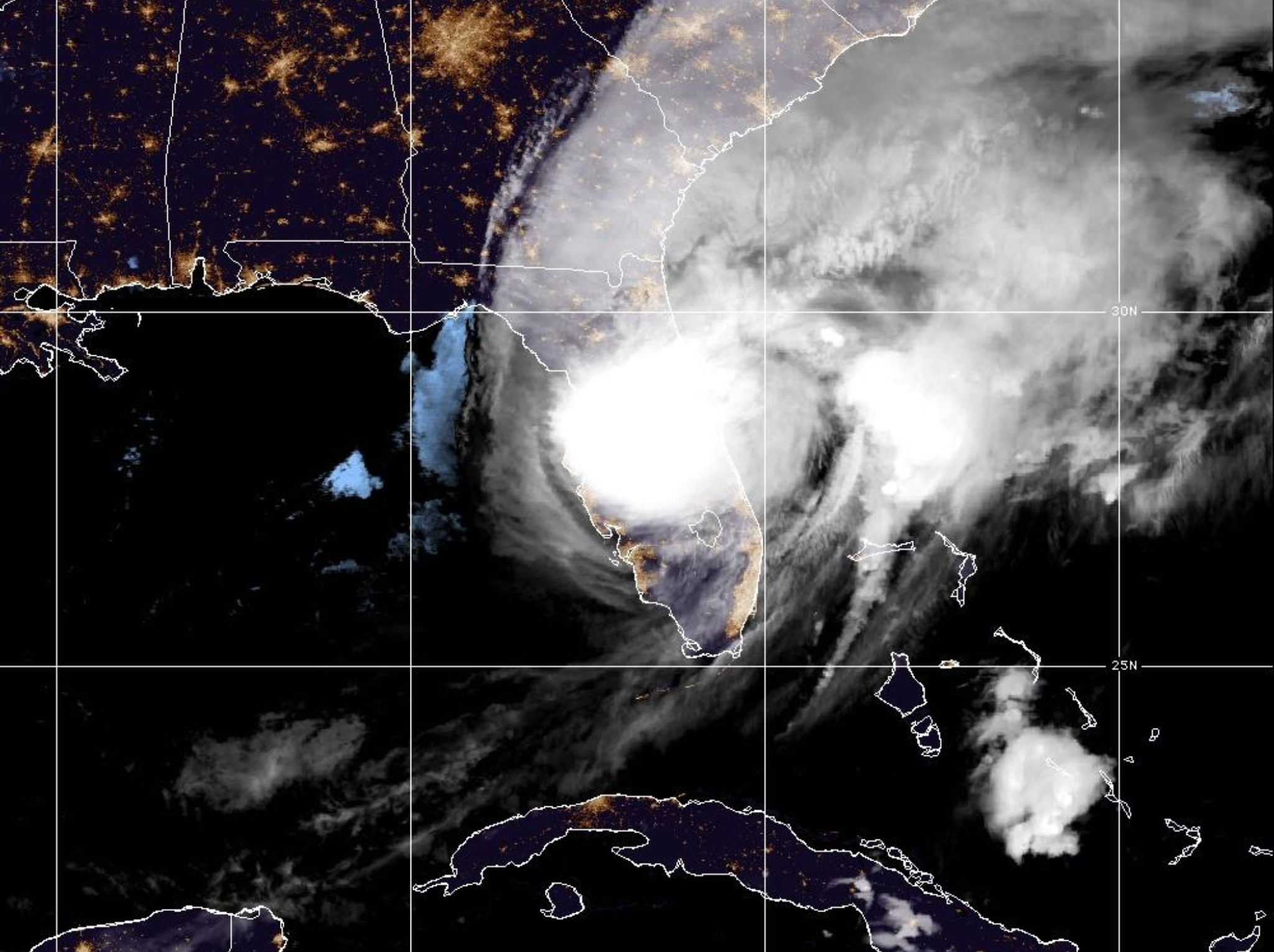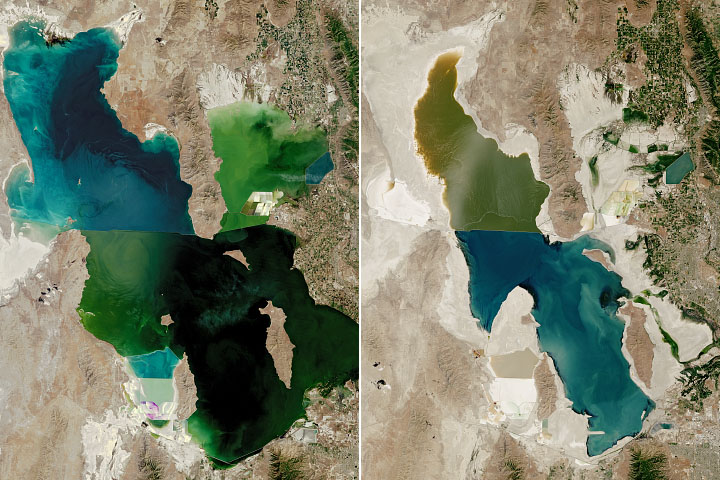General
Hurricane Milton and this Climate Moment
We’re witnessing the collision of extreme weather, climate science, national news and politics. The question of “Who pays for climate disasters?” is about to become even more important.
When President Biden addressed the nation yesterday from the White House, he warned that Hurricane Milton could be one of the most destructive storms in more than a century, but he stopped short of explaining why — that climate change, fueled by our burning of fossil fuels, is making oceans warmer and storms stronger, capable …
Continue reading “Hurricane Milton and this Climate Moment”
CONTINUE READINGCommunity Solar: Compensation
Who gets the money? Compensation mechanisms are where a lot of the power of these programs resides, but naturally, also the debate.
This post is co-written by Naomi Caldwell (J.D. ’24, UCLA School of Law). Two recent posts explored community solar through the lens of its many potential benefits. (Part One on systemwide benefits and Part Two on local and individual benefits.) Today’s post follows the money, exploring community solar compensation mechanisms. The question of who makes …
Continue reading “Community Solar: Compensation”
CONTINUE READING“Salt Lakes in Crisis: Legal Responses to Ecological Catastrophes”
Upcoming U.C. Davis Law Review Symposium To Provide Interdisciplinary Focus On Threatened Western U.S. Lakes
On Friday, September 20th, the student-run U.C. Davis Law Review will host a most timely conference examining an environmental crisis facing many of the American West’s iconic “terminal lakes.” That term refers to lakes that have no natural outlet. For many years, protracted droughts and human diversions from freshwater rivers and streams feeding those lakes …
Continue reading ““Salt Lakes in Crisis: Legal Responses to Ecological Catastrophes””
CONTINUE READINGThe Harris-Trump Debate and Environmental Policy
In the ABC News debate, both candidates were asked directly, “What would you do to fight climate change?” Fracking and energy policy got most of the focus.
While abortion and immigration took center stage during last night’s presidential debate in Philadelphia, climate change and energy policy were referenced throughout the more than ninety minutes, in stark contrast to that Biden-Trump debate in June in which climate change was largely relegated to one question. From the very beginning of the debate, Trump attempted …
Continue reading “The Harris-Trump Debate and Environmental Policy”
CONTINUE READINGCommunity Solar: Local and Individual Benefits
Community solar offers a rich case study for how a diverse range of values can be integrated into the traditionally narrow scope of public utility commission decision-making.
Earlier this week, I published a blog post highlighting some of the systemwide benefits community solar programs can provide and exploring considerations for policy design prioritizing each benefit. Today’s post continues that project, this time focusing on several of the benefits community solar can generate at the local or community level and for individual households: …
Continue reading “Community Solar: Local and Individual Benefits”
CONTINUE READINGCommunity Solar: The Systemwide Benefits
The debates over community solar program design are fascinating sites of struggle over which values should drive decision-making.
Electricity regulation has traditionally been defined by a relatively narrow public interest prerogative: ensuring just and reasonable rates for reliable electric service. The call to decarbonize, however, has injected a new diversity of values into the conversation. Transforming the electric power system to reduce greenhouse gas emissions is opening new opportunities to elevate values like …
Continue reading “Community Solar: The Systemwide Benefits”
CONTINUE READINGCalifornia Pulls Back On Sustainable Aviation Fuels
Air Resources Board abruptly withdraws proposal to mandate low-carbon jet fuel
California regulators had an opportunity this year to be a global leader on requiring airplanes to use low-carbon jet fuel. But the Air Resources Board announced earlier this month that it will back off from its earlier proposal to require jet fuel providers to decarbonize, through the agency’s landmark low carbon fuel standard program. Why …
Continue reading “California Pulls Back On Sustainable Aviation Fuels”
CONTINUE READINGClean Air and the Turbocharged Shadow Docket
Guest Contributors Sean Donahue & Megan Herzog write that coal advocates offer troubling new grounds for the Supreme Court to stay EPA’s carbon pollution standards.
The Supreme Court is currently considering eight emergency (or “shadow docket”) requests from coal advocates (coal-mining companies, coal-burning electricity generators, and allied State attorneys general led by West Virginia) to bar implementation of new EPA rules limiting carbon pollution from coal- and gas-burning power plants while legal challenges to the rules proceed—what is known as …
Continue reading “Clean Air and the Turbocharged Shadow Docket”
CONTINUE READINGNew Report: Charging and Financing Electric Trucks
CLEE/UCLA Law report & webinar offers solutions to meet California’s zero-emission trucks goal
California has groundbreaking goals to require automakers to sell, and large fleets to purchase, zero-emission trucks and buses in increasing percentages, starting this year. But these goals will only be achievable if the state has sufficient charging infrastructure to fuel the vehicles, along with available financing to help truck owners purchase or lease them. To …
Continue reading “New Report: Charging and Financing Electric Trucks”
CONTINUE READINGAssessing the First Decade of California’s Sustainable Groundwater Management Act
You’re Invited to “10 Years In: A SGMA Report Card”–A Conference at U.C. Davis Law School on 9/6
A decade ago, California stood out–and not in a good way–as the only Western state without comprehensive state laws monitoring and regulating groundwater pumping and use. But in 2014, following years of severe and protracted California drought, and both agricultural and urban water users compensating for depleted surface water flows by pumping groundwater in unprecedented …
Continue reading “Assessing the First Decade of California’s Sustainable Groundwater Management Act”
CONTINUE READING













